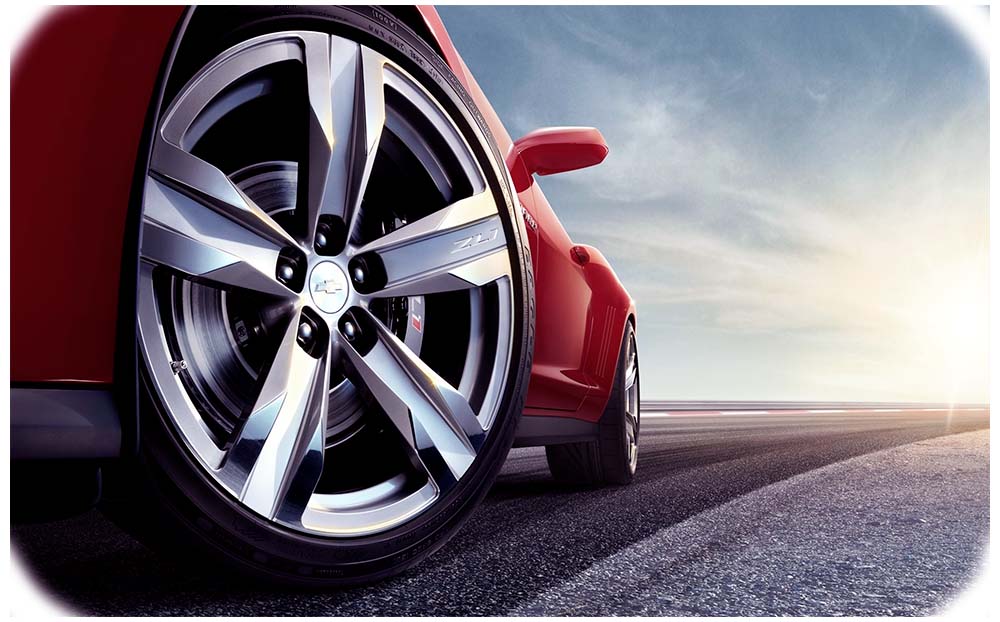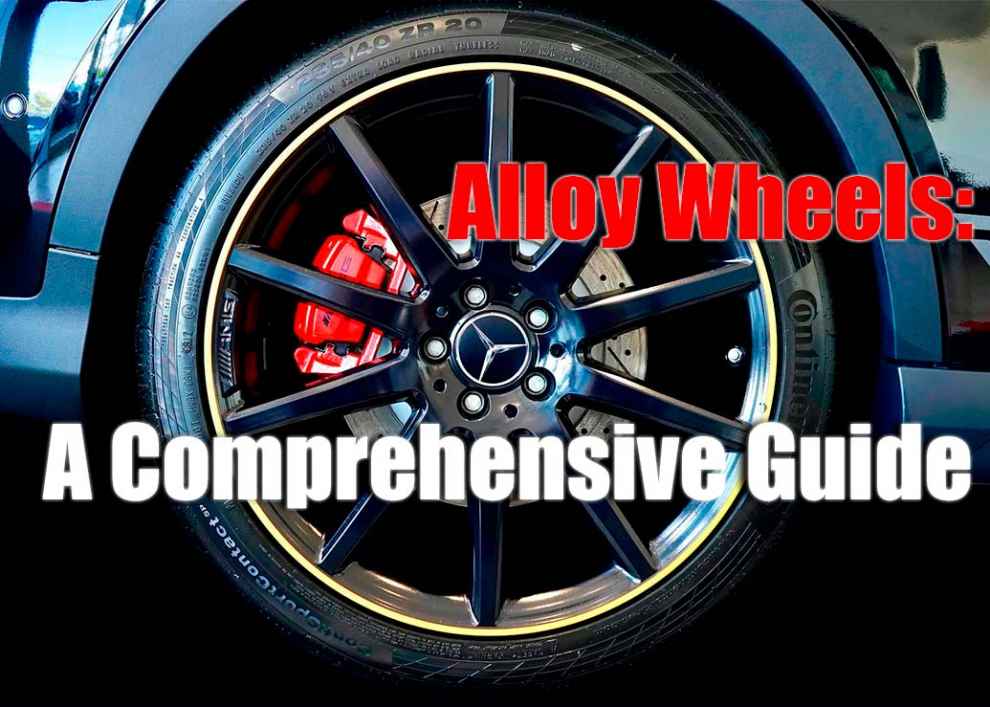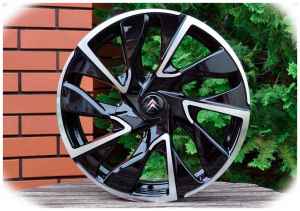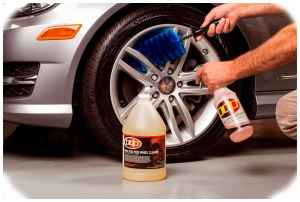Alloy wheels are an increasingly popular choice among car owners looking to customize their ride. The distinctive design and construction of alloy wheels sets them apart from traditional steel wheels, providing drivers with a range of advantages in terms of performance, style, and durability. In this guide, we will explore the world of alloy wheels and learn about the advantages they offer over traditional steel wheels, as well as the different types available on the market today.
What are Alloy Wheels?

Advantages of Alloy Wheels Over Steel Wheels
The primary advantage of alloy wheels over their steel counterparts is increased strength and lighter weight – both factors which help to improve vehicle handling and fuel efficiency. Thanks to the use of lightweight materials such as aluminum and magnesium in their construction, alloy wheels are typically much lighter than steel wheels of the same size, meaning they require less energy to move and reduce overall vehicle weight. This in turn leads to improved performance characteristics such as faster acceleration, better braking response, and enhanced cornering capability.
In addition to improved performance, alloy wheels also offer drivers a greater range of aesthetic options than traditional steel wheels. Thanks to their unique construction and design, alloy wheels can be produced in a variety of eye-catching shapes and sizes that are sure to make your car stand out from the crowd. In addition to this, alloy wheels come in a range of color finishes that can be matched with your vehicle’s paintwork for an even more distinctive look. Also read here about Best All Terrain Tires for Jeep Grand Cherokee.
Types of Alloy Wheels
As previously mentioned, the primary difference between alloy and steel rims lies in their construction – different types of alloy rims exist which use different combinations of metals for improved performance characteristics or cost efficiency depending on what is required for the application. Common types include cast, forged, flow-formed and hybrid alloys which we will explore in more detail below:
-
Cast Alloy Wheels – These are created by pouring molten metal into a mold where it is allowed to cool before being machined into shape. Cast alloy wheels tend to be very strong and durable and are usually the most affordable type available.
-
Forged Alloy Wheels – These are made by hammering a block of billet aluminum or magnesium into shape under immense pressure, resulting in a wheel that is lighter than cast alloys but incredibly strong. Despite their higher price tag, forged alloy wheels offer superior performance characteristics over their cast counterparts.
-
Flow-Formed Alloy Wheels – A relatively new process, flow-forming involves spinning a pre-formed wheel disc over an inflating bladder while metal is pressed against its outer surface to form the desired shape and size. This results in a lightweight yet incredibly strong rim that offers excellent levels of performance without breaking the bank.
-
Hybrid Alloy Wheels – As the name suggests, hybrid alloy wheels combine elements from both cast and forged alloys wheels to provide drivers with the best of both worlds – strength and light weight at an affordable price point.
Factors to Consider when Buying Alloy Wheels
When purchasing alloy wheels for your vehicle it’s important to consider several factors such as size and offset, load rating, compatibility with your vehicle etc…to ensure you get the right ones for your needs.
Size and Offset – The diameter and width of a wheel are measured in inches, and the offset is the distance between the hub mounting surface and the centerline of the wheel. It’s important to ensure your chosen wheels are compatible with your vehicle to ensure they fit correctly without excessive rubbing or clearance issues.
Load Rating – This refers to how much weight each wheel can support safely, so it’s important to make sure you choose wheels that can handle your vehicle’s weight safely – particularly if you plan to upgrade in future or add additional components such as suspension kits etc…
Compatibility with Your Vehicle – As with size and offset, it’s important to make sure that any alloy wheels you purchase are compatible with your vehicle. This includes checking they will fit on your car without modifications, as well as checking that they function properly with electronic components such as ABS (Anti-lock Braking System) sensors etc…
Care and Maintenance
Just like steel wheels, alloy rims require regular care and maintenance in order to keep them looking their best for many years – here are some tips:
-
Cleaning and Protecting Alloy Wheels – Regularly cleaning alloy wheels to remove dirt, brake dust, and other contaminants is essential to prevent corrosion. Use an alloy wheel cleaner, soft brush and microfibre cloths to gently remove dirt before applying a protective wax or sealant to help protect your wheels from the elements.
-
Repairing and Restoring Alloy Wheels – If alloy wheels are damaged due to a minor accident or wear they can often be repaired with relative ease. If scratches, scrapes or chips occur they can be buffed out and touched up with a matching paint or clearcoat – for more serious damage such as cracks it may be necessary to replace the wheel entirely.
-
Upgrading and Customizing Alloy Wheels – It’s also possible to upgrade existing wheels by adding aftermarket components such as spacers for improved stance or wider rims for improved performance etc… Or you can customize your wheels with different finishes such as chrome, black chrome, satin black etc…to give them a unique look that will set your car apart from the crowd.
Benefits of Using Alloy Wheels
Alloy wheels have many benefits over standard steel rims which make them an attractive choice when looking to customize your vehicle; these include:
-
Increased strength & lighter weight – alloy wheels are typically much stronger and lighter than steel rims of the same size, resulting in improved performance characteristics such as faster acceleration, better braking response, and enhanced cornering capability.
-
Greater range of aesthetic options – thanks to their unique construction and design, alloy wheels offer drivers a greater range of aesthetic options than traditional steel rims including a variety of eye-catching shapes and sizes as well as various color finishes to match your vehicle’s paintwork.
-
Cost efficiency & compatibility – compared to steel wheels, alloy rims tend to be more affordable while also offering superior durability for their cost. In addition to this, they are also compatible with many different vehicles without requiring modifications or additional components. Here you can choose the Best Beadlock Wheels for Jeep JK.
Conclusion
Alloy wheels are becoming an increasingly popular choice among car owners looking for a way to customize their ride without breaking the bank. Thanks to their unique construction and design, alloy wheels offer drivers a range of advantages over traditional steel rims including increased strength & lighter weight for improved performance characteristics; greater range of aesthetic options; cost efficiency & compatibility with many different vehicles etc… With all this in mind it’s easy to see why they have become so popular in the automotive industry.
Summary of Key Points
-
Alloy wheels are a type of wheel rim made from a combination of two or more metals – typically aluminum or magnesium – fused together to create a strong yet lightweight wheel.
-
Compared to steel wheels, alloy rims offer increased strength & lighter weight for improved performance characteristics; greater range of aesthetic options; cost efficiency & compatibility with many different vehicles.
-
Four common types of alloy wheels exist which include cast, forged, flow-formed and hybrid alloys. When purchasing alloy wheels it’s important to consider factors such as size and offset, load rating, compatibility with your vehicle etc…to ensure you get the right ones for your needs.
-
Regular care and maintenance is needed to keep alloy rims looking their best for years – this includes cleaning and protecting them as well as repairing and restoring them if necessary.
Future of Alloy Wheels in the Automotive Industry
With the increasing popularity of customizing cars in recent years, there is no doubt that alloy wheels will remain an important part of the automotive industry going forward. As technology advances so too do the available options when it comes to personalizing your ride – today drivers can choose from thousands of different styles and finishes of alloy wheels to suit their individual needs and taste. As such, it’s likely that alloy wheels will only become more popular in the years to come as drivers continue to look for ways to make their vehicles unique.

 Cast Alloy Wheels – These are created by pouring molten metal into a mold where it is allowed to cool before being machined into shape. Cast alloy wheels tend to be very strong and durable and are usually the most affordable type available.
Cast Alloy Wheels – These are created by pouring molten metal into a mold where it is allowed to cool before being machined into shape. Cast alloy wheels tend to be very strong and durable and are usually the most affordable type available. Cleaning and Protecting Alloy Wheels – Regularly cleaning alloy wheels to remove dirt, brake dust, and other contaminants is essential to prevent corrosion. Use an alloy wheel cleaner, soft brush and microfibre cloths to gently remove dirt before applying a protective wax or sealant to help protect your wheels from the elements.
Cleaning and Protecting Alloy Wheels – Regularly cleaning alloy wheels to remove dirt, brake dust, and other contaminants is essential to prevent corrosion. Use an alloy wheel cleaner, soft brush and microfibre cloths to gently remove dirt before applying a protective wax or sealant to help protect your wheels from the elements.
Add Comment